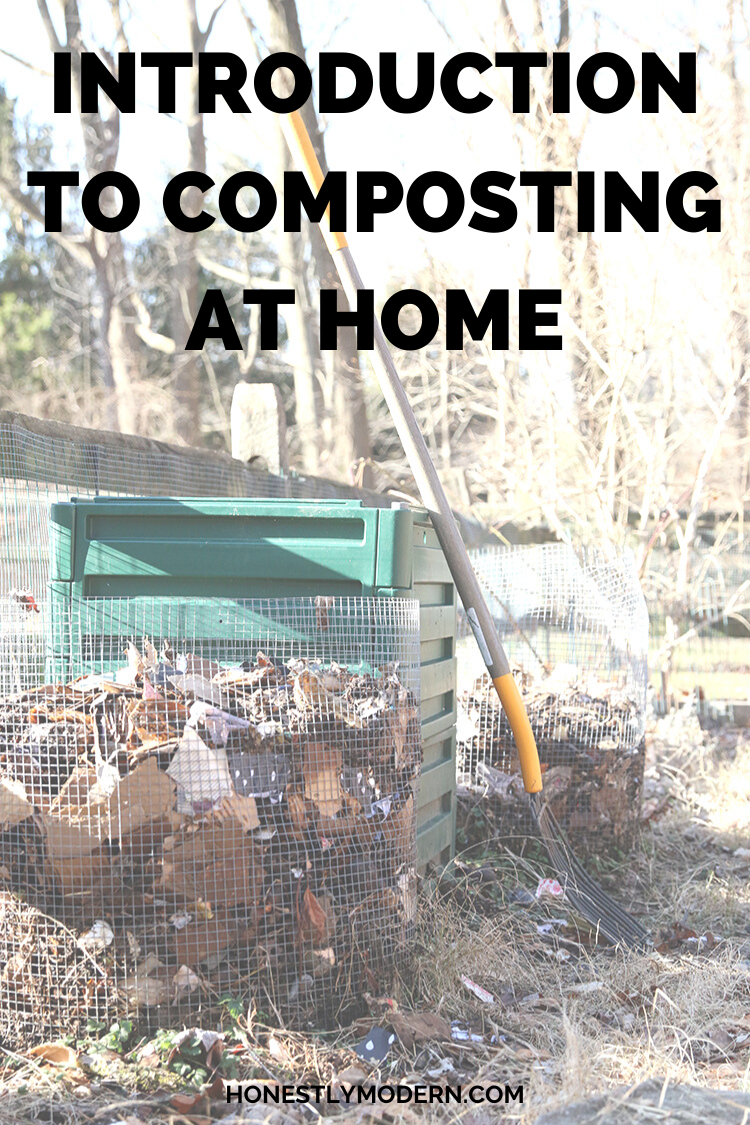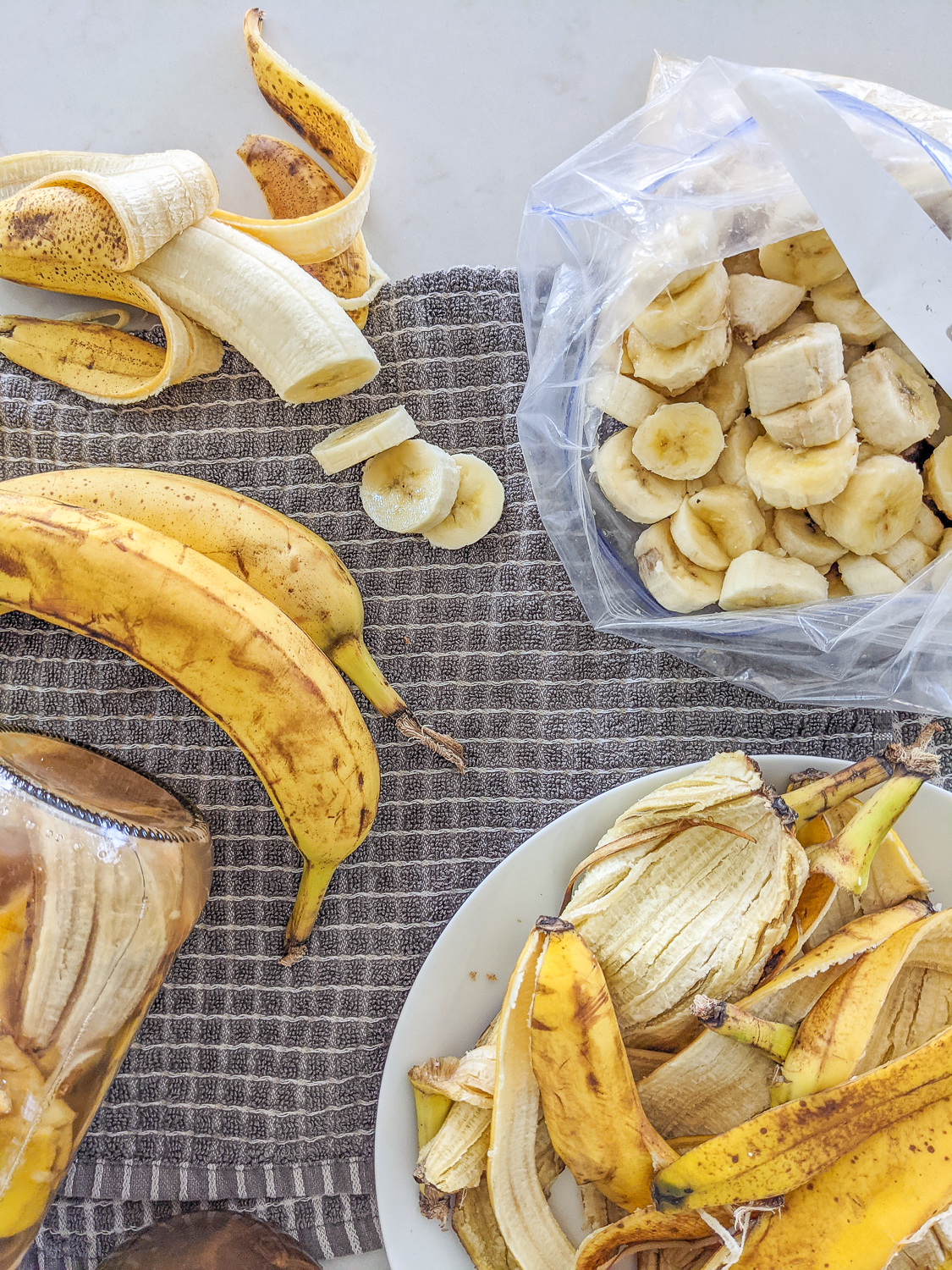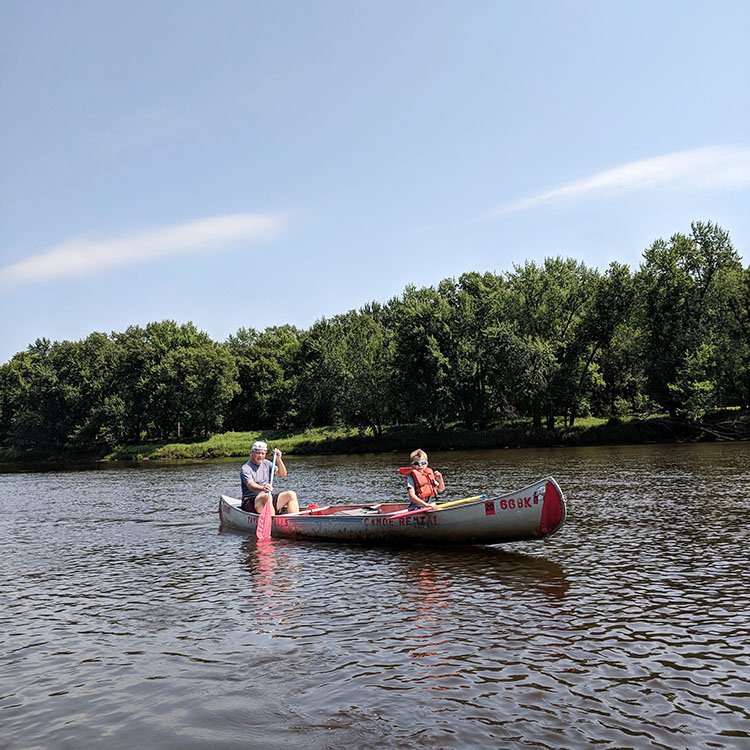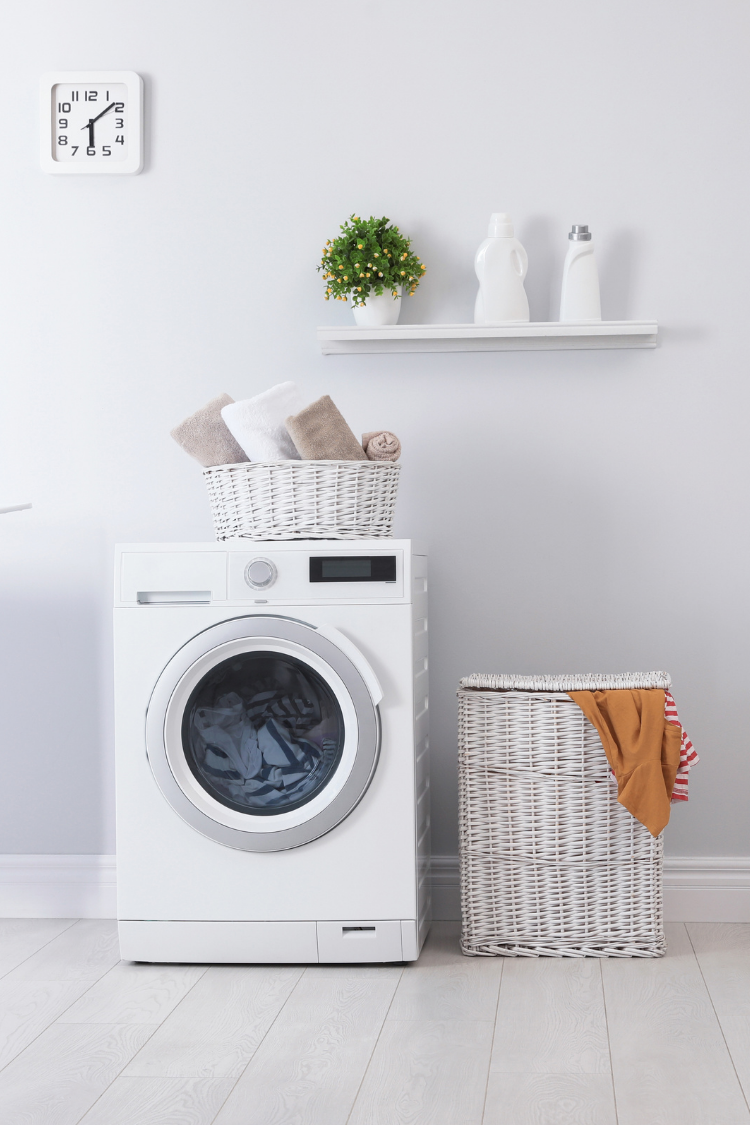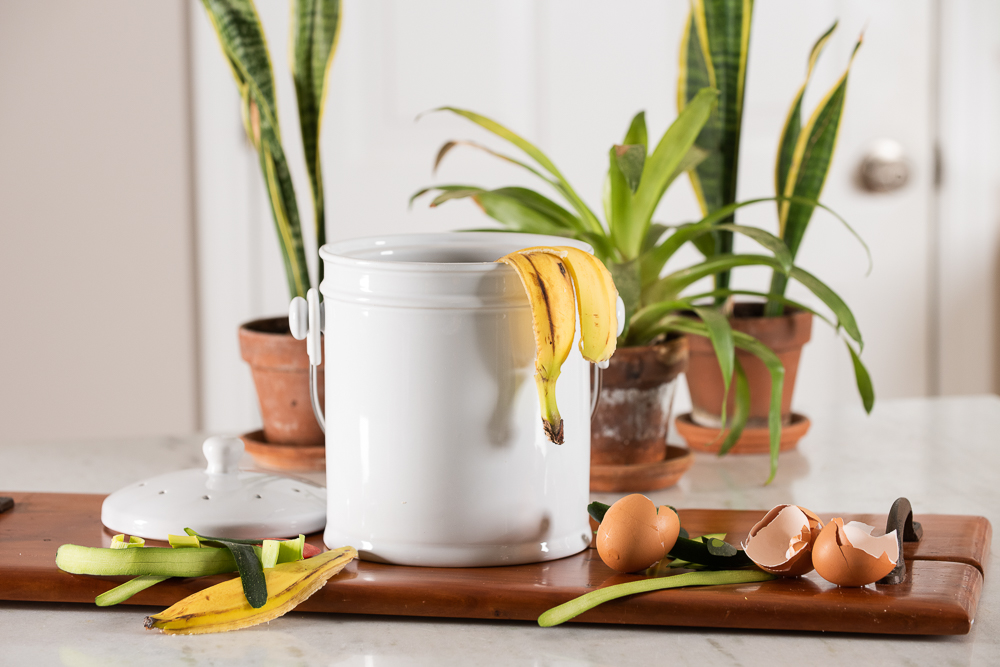What is Composting?
This is the first in a series of posts all about composting at home, which does not have to be difficult or gross. Most people can compost at home via one of a variety of ways. Before getting into HOW to compost at home, let’s dive into what it is. Here are all the details about the basics of composting.
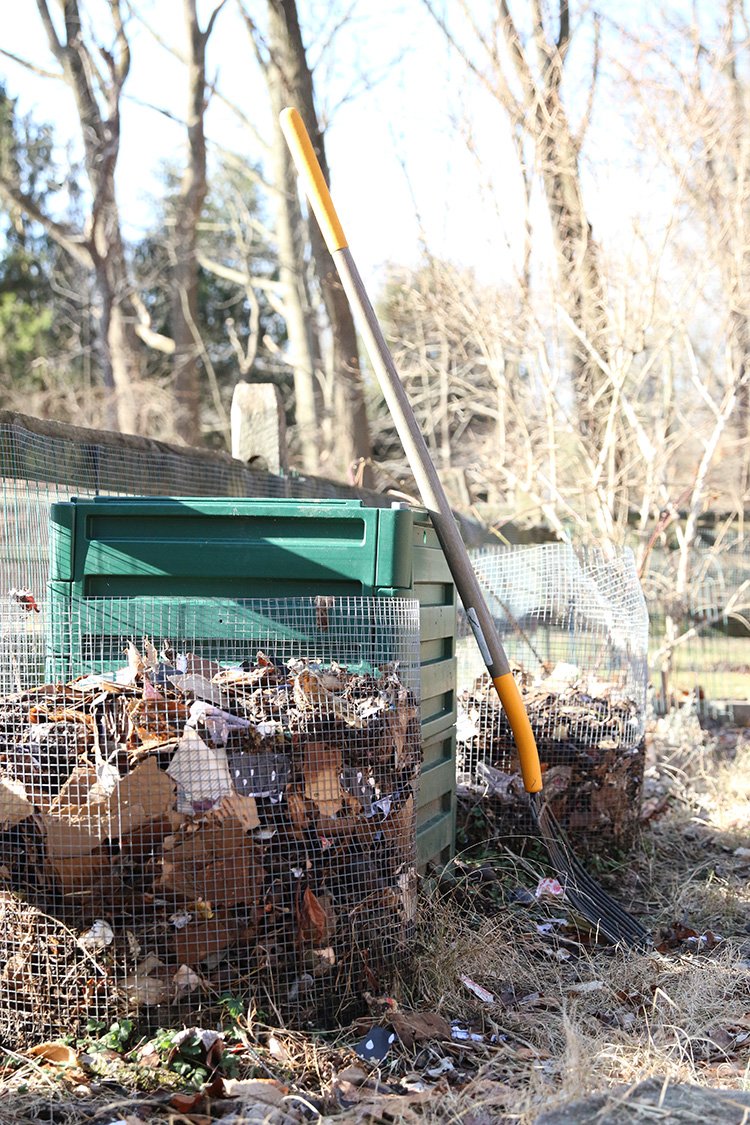
Did you know that 28% of consumer trash in the United States is comprised of organic matter such as food scraps and yard waste that should be composted? When tossed in landfills, organic matter does not decompose properly and generates greenhouse gases, called methane, that are 25 times worse than carbon emissions.
If we composted our yard waste and food scraps instead of throwing them in the trash, we would not only divert nearly a third of the waste sent to landfills, but we would also trade potent greenhouse gas emissions for nutrient-rich food for healthier and more productive soil. Why are we not doing this more??!
I believe there are several reasons why people don’t compost, the largest being a lack of awareness about the impacts of composting (and not composting) and the knowledge about how to do it. Composting seems so intimidating, yet composting is actually really easy, even at home.
Let’s dive in and dispel all the myths that composting is scary, hard, gross, or confusing. Just about everyone can compost through at least one of the myriad composting methods available.
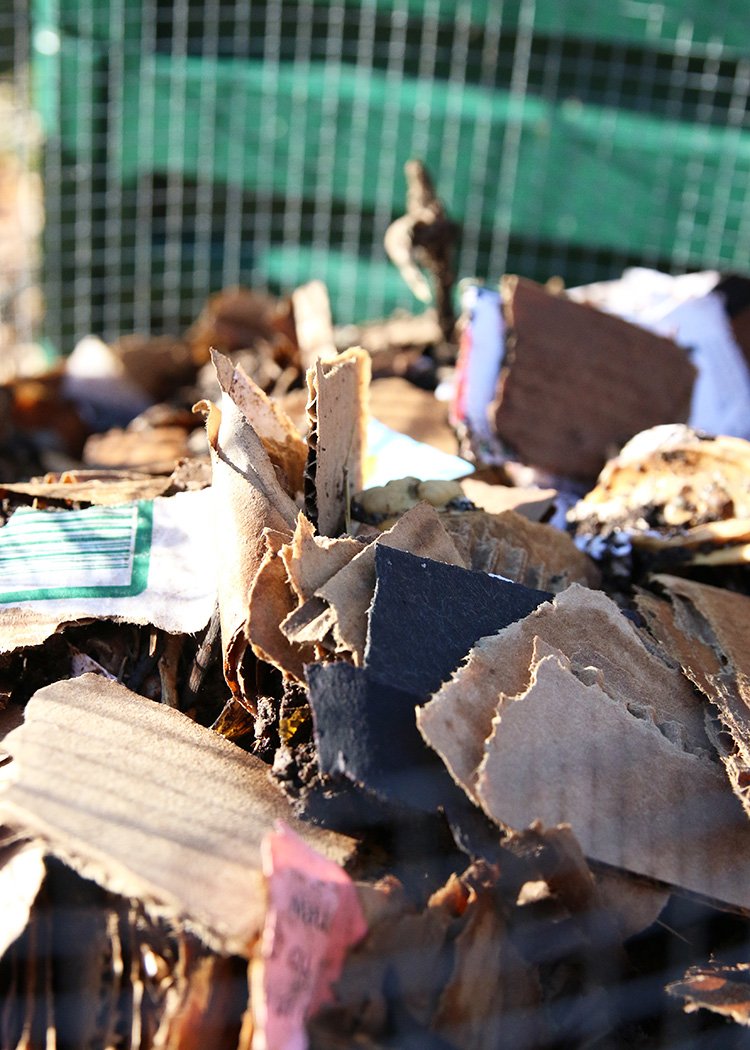
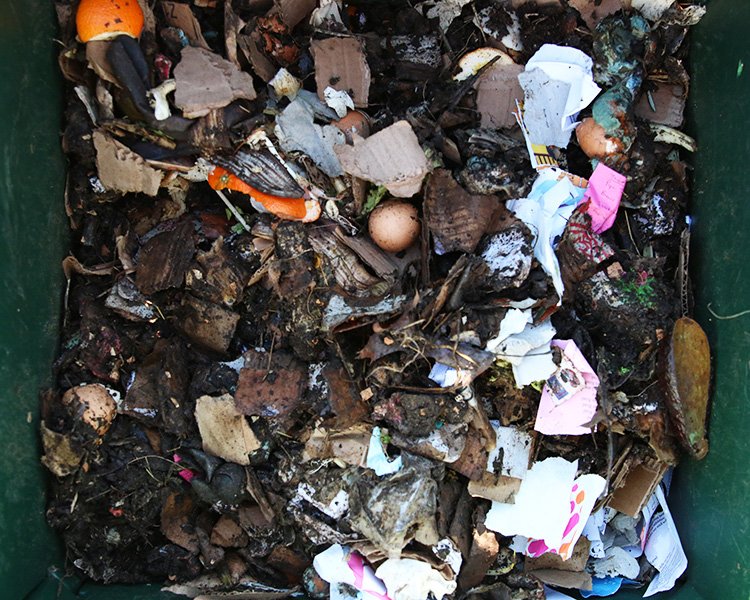
What Is Composting?
Composting is a process by which organic matter breaks down over time and becomes a substance rich in nutrients for our soil. Nitrogen-rich materials (such as food scraps and grass clippings) are combined with carbon materials (like cardboard and dead leaves), water, and oxygen. The materials decompose into their inorganic nutrient components to be “recycled” and returned to the soil as food for new plants and the plethora of microorganisms living in the soil.
Finished compost is called humus and is a crumbly substance that looks like dark, moist dirt. It is full of healthy nutrients and also home to lots of microorganisms that do the work of composting. Adding humus to existing soil replenishes it and helps heal soil that is depleted and dry.
Simplify The Science
Composting is a scientific and biological process that can seem very technical when executed with precision. However, composting at its core is just the decomposition of things from nature and is easy to do so long as we do not aim for perfection.
Many composting books delve into the technical chemistry and biology of composting. They discuss how to precisely mix different types of organic matter to speed up decomposition or produce just the right blend of nutrients in the finished compost.
The exactness of composting might be important for those running commercial or industrial composting facilities, especially when they sell or share their finished compost with others. For those of us looking to reduce our waste at home, prevent our food scraps and yard waste from entering landfills, and generally reduce our individual climate change impact, composting does not have to be an exact science at all.
If the “perfect ratios” and “exact timelines” of composting intimidate you, throw them out the window. That is not the type of composting we are discussing here and not a priority for most families and individuals looking to compost at home.
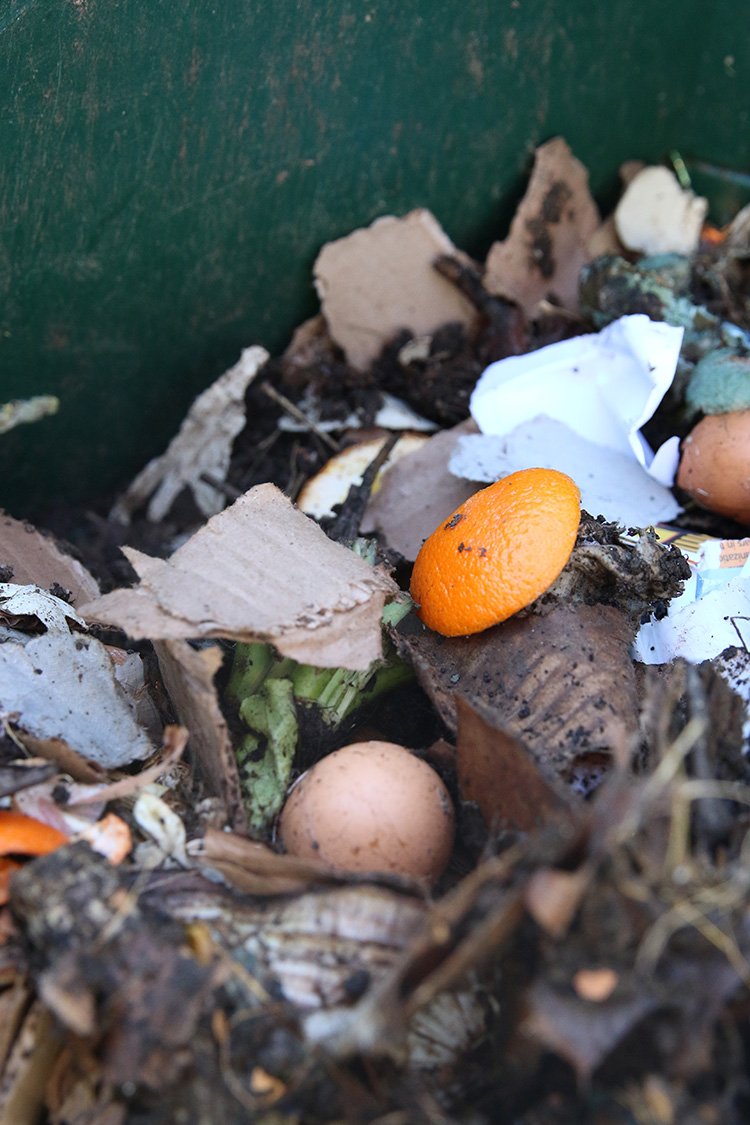
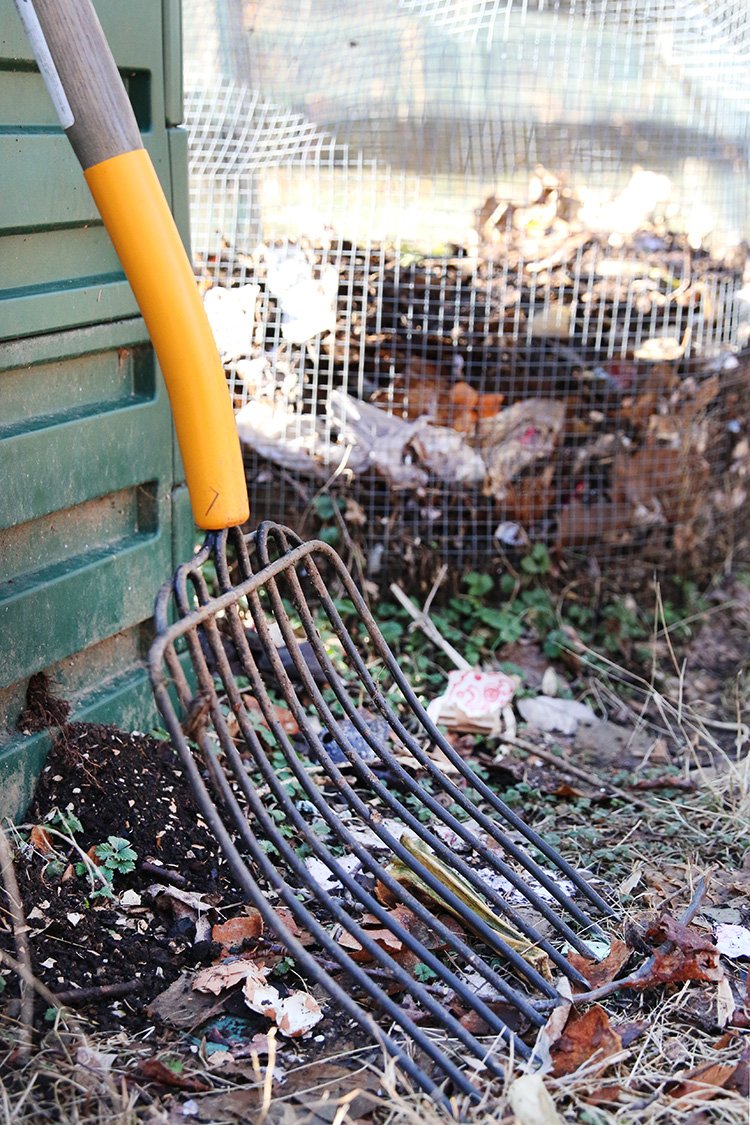
How Does Composting Work?
Compost includes a complex web of microorganisms (like bacteria and fungi), bugs, worms, and other creatures that eat the organic matter and also eat each other. The microorganisms eat the organic compost ingredients and use the carbon for energy much like humans eat food.
Through aerobic respiration (using up oxygen), the bacteria and fungi break down the organic matter into inorganic nutrients like nitrogen, potassium, and phosphorus. As part of the finished compost or humus, these inorganic nutrients promote strong plant growth and healthy soil.
In the compost pile, larger bugs eat smaller organisms that consume the bacteria and fungi. If the scene in my garden each morning is any indication, birds feast on the bugs in the compost pile and in the soil throughout the garden with a vengeance. I can only presume the birds continue the cycle of the food chain outside my compost bin and garden as well.
Once the microorganisms break down all the waste, the pile of former trash becomes a mound of garden gold. The finished compost has a sweet, earthy smell. It is dark brown with a crumbly texture. When mixed with soil, it replenishes the nutrients lost to prior harvests, erosion, and other wear and tear on the terrain.
The following chart shows a simplified version of how organic matter decomposes in a compost bin versus a landfill.
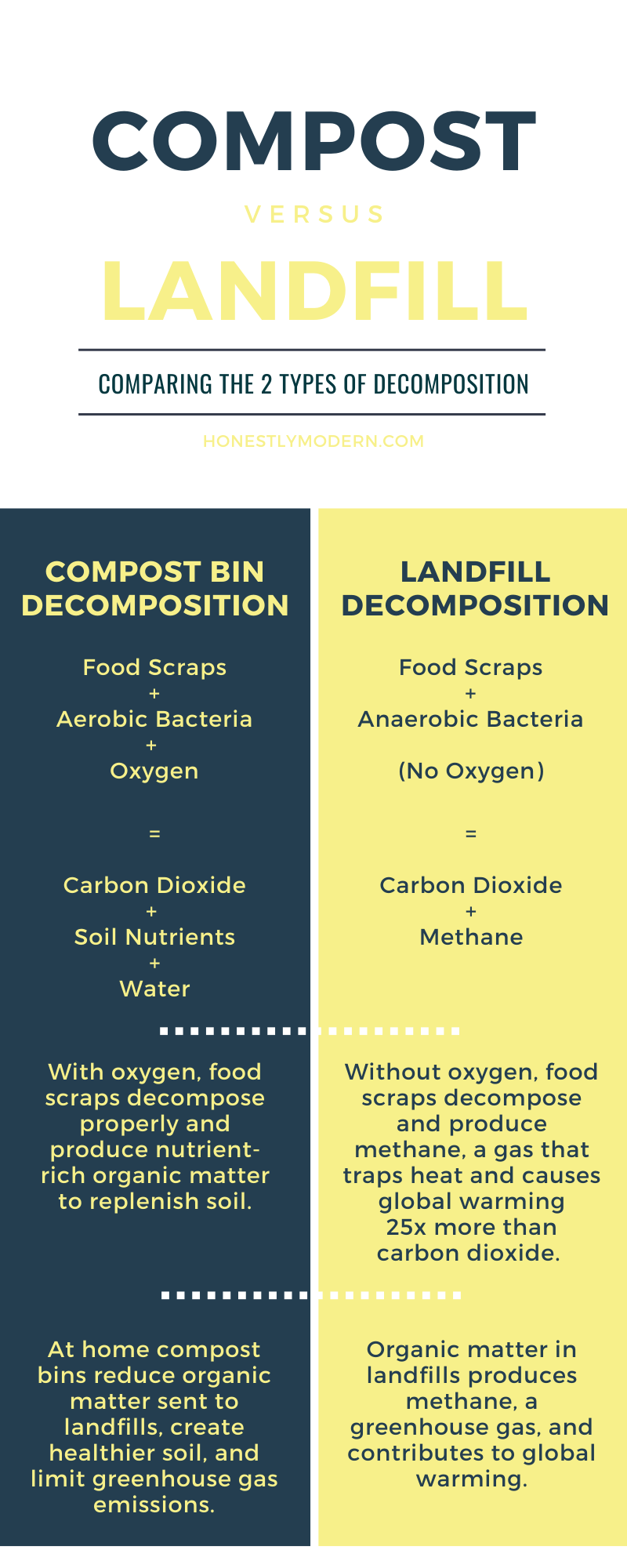
Why Is Composting Important?
Composting has a host of benefits but serves three primary goals.
First, composting is a natural way to recycle nutrients and resources provided by the Earth and return them to the Earth to complete the cycle of life. Nature uses healthy decomposition to sustain all sorts of life on our planet. Composting our food scraps is a great example of following the lead nature has set for us with respect to best practices for a healthy planet.
Composting also reduces the amount of solid waste that ends up in landfills. We have overflowing municipal landfills that are both costly to operate and limited in space. As noted above, composting can reduce the space needed in landfills by 28%, which decreases both the physical space needed to house landfills and the cost associated with running them.
We also need to compost our food scraps to reduce greenhouse gas emissions and turn the tables on climate change. When organic matter (such as food scraps and yard waste) decomposes with oxygen, it properly breaks down and turns into carbon dioxide, water, and nutrients for the soil.
Healthy soil can even become a carbon sink, or carbon sequestration solution, because healthy soil absorbs much more carbon from the atmosphere than dry and depleted soil. Using compost to revitalize our soil is one method of literally pulling carbon out of the air and returning it to the soil to reduce global warming.
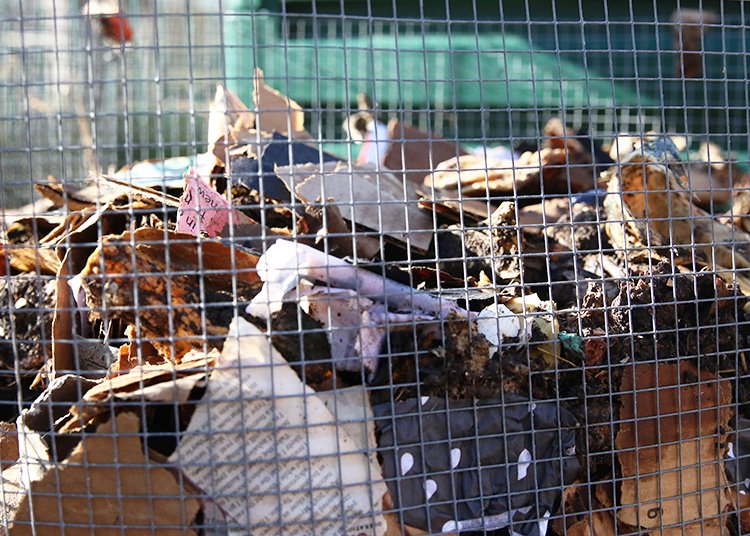
In a landfill, however, organic matter does not have enough oxygen to properly decompose. Without oxygen, food scraps decompose through an anaerobic process that releases methane into the atmosphere. Methane is 25 times more potent than carbon dioxide with respect to a global warming impact.
In other words, when we consider the “greenhouse gas footprint” of various lifestyle habits, methane released from the decomposition of organic materials in a landfill has a global warming potential 25 times that of a process that releases the same amount of carbon.
Negative Carbon Footprint of Composting
Through many of our lifestyle changes, we look for sustainable or zero waste options that have little to no impact on the planet. Composting takes this one step further and has a negative carbon footprint. When we compost, we not only lower the volume of new greenhouse gases emitted into the atmosphere, but we also create healthier soil that reduces greenhouse gases currently floating in our atmosphere.
Changing this one simple habit in our homes that, oftentimes, is free or may even save money, can have a positive impact on the environment and our communities.
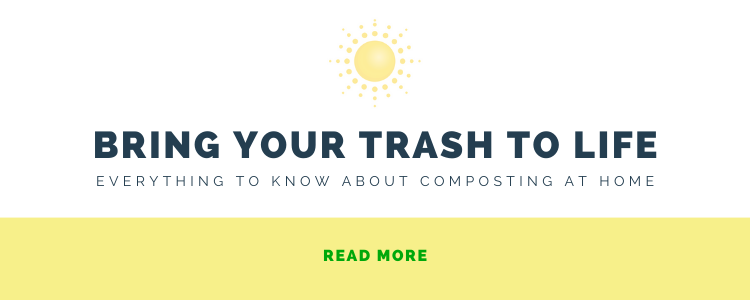
Composting Is Easier Than It Looks
For beginners, composting at home might seem intimidating. I totally get it! I was there, and I felt entirely overwhelmed to start. But composting is really easy if you give it a shot and don’t take it too seriously. Check out all the stories from the You Can Make Dirt Series where I interview everyday, modern families composting at their homes in a bunch of different ways!
Composting is a natural process that isn’t dirty or gross. It can be accomplished for very little money if any cost at all in many cases. And the benefits to the environment are immense.
Composting is a great bang for our eco-friendly buck, and I think it’s a pretty natural entry point to more environmentally-friendly living in general.
If you haven’t tried it, consider giving it a shot. If you’re overwhelmed, intimidated or just don’t know where to start, leave your comments below. I’m working on a whole bunch more posts to answer all your composting questions!

